Aftershock: Beyond the Civil War is a american film of genre Documentary released in USA on 1 december 2006
Aftershock: Beyond the Civil War (2006)
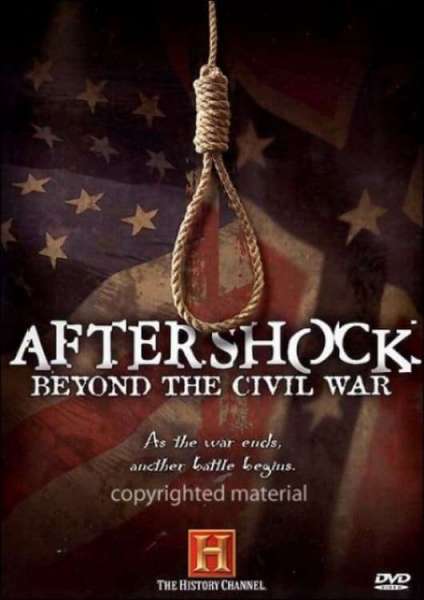
If you like this film, let us know!
- Infos
- Casting
- Technical infos
- Photos
- Videos
- Film quotes
- Characters
- Music
- Awards
Released in USA 1 december 2006
OriginUSA
Genres Documentary
Themes Films about racism, Documentary films about racism, Documentary films about law, Documentary films about war, Documentary films about historical events, Documentaire sur une personnalité, Political films
Rating73%










Aftershock: Beyond the Civil War is a TV documentary which premièred on The History Channel in 2006; DVD running time, 90 minutes. It was directed by David Padrusch who later directed other projects such as Journey to 10,000 BC (2008) and Last Stand of the 300 (2007) for the History Channel.
Synopsis
The film is about the harsh period of Reconstruction after the American Civil War in rural southern states. The period was marked with a number of deadly race riots and angry insurgencies in the south. The movie focuses on the rise of the Ku Klux Klan from a six-member group of veterans of the Confederate Army into a terrorist organization. It tells of the battles between Ku Klux Klan First Grand Wizard Nathan Bedford Forrest and Governor of Tennessee William Gannaway Brownlow, the Memphis and New Orleans Massacres, the Lowry War in Robeson County, North Carolina, as well as Arkansas' conflict with the clan. The footage consists of interviews with top historians, historical content, and recreated segments as told by narrator Mike Hodge. Director David Padrusch makes a cameo appearance as a 'Freedmen Bureau Agent' who is executed by the Ku Klux Klan in the film.Comments
Leave comment :
Suggestions of similar film to Aftershock: Beyond the Civil War
There are 8962 with the same cinematographic genres, 10575 films with the same themes (including 93 films with the same 7 themes than Aftershock: Beyond the Civil War), to have finally 70 suggestions of similar films.If you liked Aftershock: Beyond the Civil War, you will probably like those similar films :

Being Osama (2004)
Directed by Mahmoud Kaabour
Origin Canada
Genres Documentary
Themes Films based on the September 11 attacks, Films about racism, Films about religion, Films about terrorism, Transport films, Aviation films, Documentary films about racism, Documentary films about law, Documentary films about war, Documentary films about historical events, Documentaire sur une personnalité, Documentary films about politics, Documentary films about religion, Documentary films about technology, Documentary films about terrorism, Documentary films about cities, Political films, Films about Islam, Disaster films, Films about aviation accidents or incidents, Films about language and translation, Films about hijackings
Rating70%





The documentary details the lives of six Montreal Arab men, all with the first name "Osama":
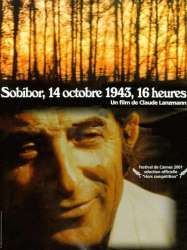 , 1h35
, 1h35Directed by Claude Lanzmann
Origin France
Genres Documentary
Themes Films about racism, Films about religion, Documentary films about racism, Documentary films about law, Documentary films about war, Documentary films about historical events, Documentaire sur une personnalité, Documentary films about religion, Political films, Films about Jews and Judaism, Documentary films about World War II
Actors Claude Lanzmann
Rating73%





Sobibor, 14 octobre 1943, 16 heures : lieu, heure, jour, mois et année de la seule révolte réussie d'un camp d'extermination nazie en Pologne. 365 prisonniers parvinrent à s'évader, mais seuls 47 d'entre eux survécurent aux atrocités de la guerre. Claude Lanzmann a rencontré Yehuda Lerner pendant le tournage de Shoah, à Jérusalem en 1979. Dans ce documentaire, ce dernier s'est confié au réalisateur.

As We Forgive (2008)
Genres Documentary
Themes Films set in Africa, Films about racism, Documentary films about racism, Documentary films about law, Documentary films about war, Documentary films about historical events, Documentaire sur une personnalité, Documentary films about politics, Political films
The film tells the story of two Rwandan women who come face-to-face with the neighbors who slaughtered their families during the 1994 genocide, and their personal journeys toward forgiveness. Featuring in-depth interviews with both survivors and murderers, As We Forgive provides an intimate, first-hand view of the encounters between genocide perpetrators and their victims’ families.

Anne Frank Remembered (1995)
, 1h57Genres Drama, Documentary
Themes Films about children, Films about racism, Films about religion, Documentary films about racism, Documentary films about law, Documentary films about war, Documentary films about historical events, Documentaire sur une personnalité, Documentary films about religion, Political films, Films about Jews and Judaism, Documentary films about World War II
Actors Kenneth Branagh, Glenn Close, Joely Richardson
Rating80%





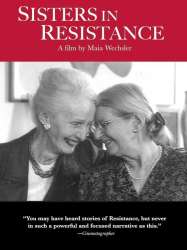
Sisters in Resistance (2000)
, 1hOrigin USA
Genres Biography, Documentary
Themes Films about racism, Films about religion, Documentary films about racism, Documentary films about law, Documentary films about war, Documentary films about historical events, Documentaire sur une personnalité, Documentary films about religion, Political films, Films about Jews and Judaism, Documentary films about World War II
Actors Kate Mulgrew
Ce film est l'histoire de quatre femmes exceptionnelles, résistantes, prisonnières, idéalistes qui à la fin de leurs adolescences risquèrent leurs vies pour combattre l'occupant nazi. Ni juives, ni communistes, elles rejoignirent la résistance alors qu'elles auraient pu tranquillement vivre en sécurité. Dans les deux ans qui suivirent, elles furent arrêtées par la Gestapo et déportées à Buchenwald. Aujourd'hui elles sont devenues des leaders sociaux ou intellectuels.

Shadows of Memory (2000)
, 43minutesGenres Documentary
Themes Films about racism, Films about religion, Documentary films about racism, Documentary films about law, Documentary films about war, Documentary films about historical events, Documentaire sur une personnalité, Documentary films about religion, Political films, Films about Jews and Judaism, Documentary films about World War II
 , 1h34
, 1h34Origin USA
Genres Documentary
Themes Films set in Africa, Films about racism, Documentary films about racism, Documentary films about law, Documentary films about war, Documentary films about historical events, Documentaire sur une personnalité, Documentary films about politics, Political films
Actors Helen Mirren
Rating75%





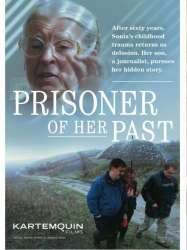
Prisoner of Her Past (2010)
, 57minutesOrigin USA
Genres Documentary
Themes Medical-themed films, Films about racism, Films about religion, Documentary films about racism, Documentary films about law, Documentary films about war, Documentary films about historical events, Documentaire sur une personnalité, Documentary films about religion, Documentary films about health care, Films about psychiatry, Films about disabilities, Political films, Films about Jews and Judaism, Documentary films about World War II
Rating74%





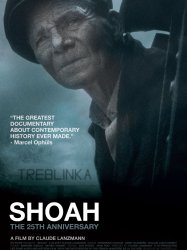
Shoah (1985)
, 9h26Directed by Claude Lanzmann
Origin France
Genres Documentary, Historical
Themes Films about racism, Films about religion, Documentary films about racism, Documentary films about law, Documentary films about war, Documentary films about historical events, Documentaire sur une personnalité, Documentary films about religion, Political films, Films about Jews and Judaism, Documentary films about World War II
Actors Claude Lanzmann
Rating86%





The film is concerned chiefly with four topics: Chełmno, where mobile gas vans were first used by Germans to exterminate Jews; the death camps of Treblinka and Auschwitz-Birkenau; and the Warsaw Ghetto, with testimonies from survivors, witnesses, and perpetrators.
 , 2h2
, 2h2Origin USA
Genres War, Documentary, Historical
Themes Films about children, Films about immigration, Films about racism, Films about religion, Documentary films about racism, Documentary films about law, Documentary films about war, Documentary films about historical events, Documentaire sur une personnalité, Documentary films about religion, Political films, Films about Jews and Judaism, Documentary films about World War II
Actors Judi Dench
Rating76%





Quelques mois avant la Seconde Guerre mondiale, une extraordinaire opération de sauvetage a arraché 10 000 enfants et adolescents juifs au régime nazi. Rapatriés en Grande-Bretagne pour être adoptés, ils durent tisser de nouveaux liens familiaux, supporter les bombardements pour certains, aller libérer leurs propres parents restés en Allemagne. Ils ont tous d'inoubliables histoires à raconter dans ce documentaire.
 Connection
Connection